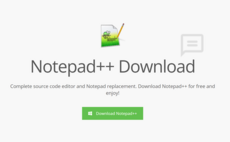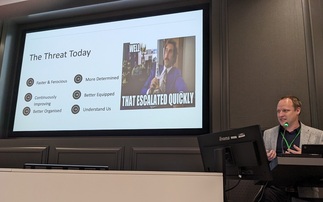
The rise of open-source databases: what you need to know
Open-source databases are here to stay, but you should investigate all your options before taking the leap, says Kevin Kline, Head Geek at SolarWinds
Tech pros must balance productivity with cost and complexity every day, and those who work with database platforms are further challenged as open-source databases become more commonplace.
Nearly one-third of tech pros surveyed in the latest SolarWinds Query Report say they're responsible for more than 300 databases at their organisations. Most respondents say half or more of their organisation's databases are considered critical to their business.
Commercial platforms still dominate - especially for business-critical applications - but open-source databases are on the rise. In previous eras, few enterprise IT teams were willing to inject risk into their internal systems by using an open-source data platform or a database management system from a new startup. Those days are over. We're at the beginning of a new era of mix-and-match data platforms, but there are critical provisos to keep in mind.
Don't adopt an open-source platform before investigating all your options first.
You can't beat free - or can you?
The advantages of open-source databases are many, with the salient one being obvious: you can't beat free or low-cost. Without the (often expensive) licensing fees attached to commercial software, IT budgets are unencumbered by contractual payments. With the savings, IT departments have enormous flexibility, can experiment, and move as quickly as market forces demand.
Because the open-source community doesn't grant licenses based on fees paid, small companies have the same access to innovative features as multinational ones. Startups and other small businesses arguably have an advantage over larger companies: they generally make decisions faster because there are fewer layers of management to reinterpret and reprioritise the factors needed for quick decision-making.
Whether or not you should adopt open source comes down to cost versus value. An enterprise may opt for a commercial tool capable of saving them thousands of dollars a year because of efficiencies and ready support. The licensing fee - even if it's six figures - may not seem so high because, well… it works. And when it doesn't, you have direct contractual recourse to fixes.
Adopting open source also means you won't be alone: according to the SolarWinds Query Report, 43 per cent of tech pros say they're currently running MySQL or MariaDB. Additionally, 18 per cent say they plan to adopt MySQL, MariaDB or another open-source database platform in the next three years.
Meanwhile, enterprises are looking to open-source databases for basic database applications - or at least weighing the pros and cons. They have the on-hand expertise with database management. Ultimately, many enterprises decide to wait for better tooling before committing to a frontline adoption of an open-source database platform.
First, investigate your options
Before jumping into open-source databases, database pros should investigate why and when these platforms make the most sense for their organisations. Many times, the initial steps in an investigation about whether to use open-source databases focus only on the performance and workload capabilities of the platform. But this isn't enough.
Admittedly, finding the time to investigate these matters can seem like an insurmountable problem. After all, the SolarWinds Query Report found database professionals work with diversified platforms of more than 300 databases. Just keeping this many databases up and running, resolving problems, and fighting fires is more than a full-time job.
In fact, the report also found maintenance work accounts for a substantial portion of the database professional's day: one-third of tech pros surveyed stated much of their days were spent in maintenance. Of course, this leads to less time for investigating open-source database platforms or, for that matter, any sort of analysis potentially leading to productivity gains and cost savings.
A monitoring mindset
Tech pros can save time spent on maintenance when they implement appropriate automation and monitoring tools. Database monitoring tools, in this case, can foresee problems before they reach criticality and can even respond to various alarms in real time. Automation, on the other hand, frees up time to focus on proactive database performance management. While database professionals upskill, innovate, and investigate their open-source options, monitoring tools can run in the background, further leveraging their ability to manage multitudes of databases.
One thing I've seen over many decades of experience is that enterprises with a monitoring mindset are much more successful than those without one. When top shops get a new database platform, they don't even consider moving it into production without a monitoring method ensuring it can't break without them knowing about it. They make sure it doesn't run amok, taking all the processing cycles on a particular server. Doing this helps enormously as tech pros continue to add more things to their plates.
Open-source databases are here to stay. Before deploying one, however, investigate your options thoroughly (remembering the consequences for a wrong choice are real). Then, when deploying the new database platform, be sure to deploy automation and monitoring along with it. And throughout, have rules of deployment based on clear business goals—take the politics out of the mix.





















